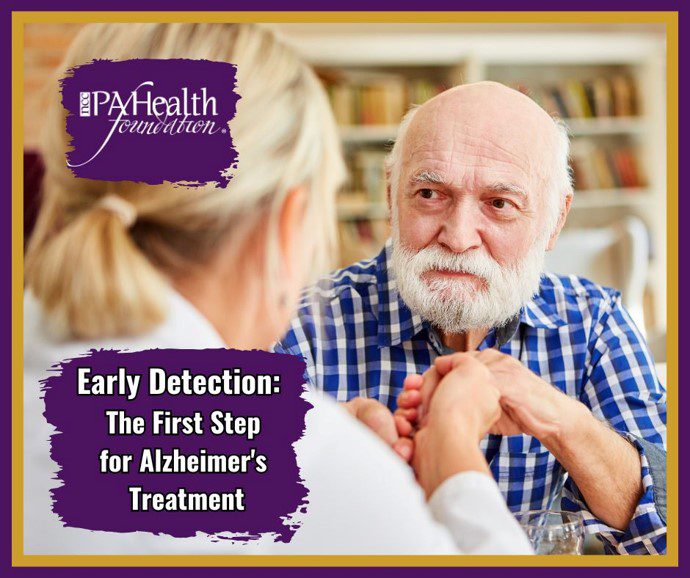Early Detection: The First Step for Alzheimer's Treatment
In 2024, an estimated 6.9 million Americans over age 65 are living with Alzheimer’s disease. This translates into about 1 in 9 people over age 65 being impacted. Deaths due to Alzheimer’s disease have more than doubled over the last twenty years, and 1 in 3 seniors will die with Alzheimer’s or another type of dementia. These sobering statistics should serve as a critical warning that the status quo in recognition of this illness is no longer acceptable.
Alzheimer’s disease is a progressive neurodegenerative disorder that gradually impairs memory, cognitive functions, and daily functioning. Beyond the increasing prevalence, early detection can dramatically impact the well-being of affected individuals and their families by allowing for timely interventions, improved management, and better planning for the future.
PAs, especially those in primary care, emergency medicine, and psychiatry, are on the forefront of early identification for Alzheimer’s disease and other mental health disorders. Frequently, these cases present themselves based on concerns from patients and families. The best course of treatment is often started earlier when there is a heightened awareness of the progressive nature of these diseases.
While there is no cure for Alzheimer’s disease, one crucial aspect of treatment is the potential to slow the disease progression. Medications and lifestyle modifications as well as cognitive interventions can alleviate symptoms and delay cognitive decline when the disease is identified in the early stages.
Although early detection has many benefits, 55% of PCPs caring for people living with Alzheimer’s report there are not enough dementia care specialists in their communities. As we improve detection, we must also address the resources that will be needed to provide care and treatment. PAs working in these sub-specialties can expand the provider workforce.
In conclusion, early detection of Alzheimer’s disease is crucial for providing the best possible care, improving outcomes, and advancing research towards finding a cure. It empowers individuals and families to take control of their health and plan proactively for the future.

Resources & References:
- Cognitive Assessment Tool: GPCOG Screening Test English (alz.org)
- Alzheimer’s Association: Alzheimer’s Association | Alzheimer’s Disease & Dementia Help
- Dementia with Lewy bodies – Primary care PAs can make this difficult diagnosis – JAAPA
- Navigating Early Alzheimer’s Diagnosis: A Comprehensive Review of Diagnostic Innovations – PubMed Central
- Alzheimer’s Disease Program: Health Brain Resource Center – CDC

